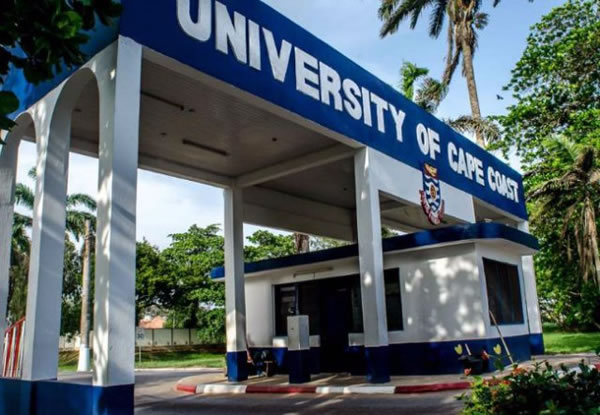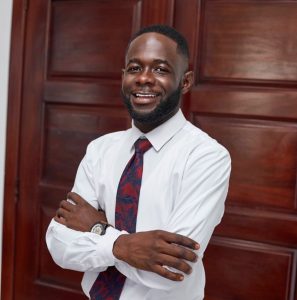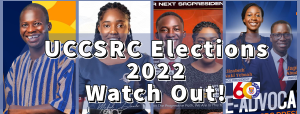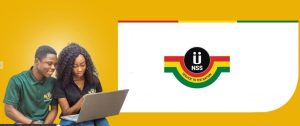The long walk to freedom and justice in Ghana, never ended with Nkrumah’s freedom declaration in his Independence speech. From time immemorial, major fragments of society have labored, and cried, and struggled in one way or the other towards the quest for freedom and justice. As such, students of the University of Cape Coast are at that point in time today. Where cometh freedom, and where cometh justice? If God created all men equal, and the constitution guarantees our fundamental freedom, why must we fight for it again?
In the wake of the Coronavirus, and in adhering to the call by the President of Ghana to suspend all academic activities, most tertiary institutions in Ghana, both private and public, closed down until further notice in the quest to stay the spread of Covid-19 virus. As a measure to not disrupt the academic calendar, and to keep students busy while at home, the Ministry of Education tasked tertiary institutions to roll an online or E-Learning platform to facilitate teaching and learning in our institutions of higher learning.
While the Ministry of Education failed to add government’s interventions in aid of this quest, on the 29th of March, 2020 Vice-Chancellors Ghana (VCG), an association of all Vice-Chancellors in our Public Universities, stated emphatically in a Press Release that “VCG acknowledges that this arrangement, though laudable under our circumstances, may be fraught with some challenges particularly for students in remote communities in the country where there is limited internet access. We do however recognize the importance of rolling out this platform and continuing to build on it to achieve better outcomes”. From this statement, a serious issue of internet accessibility to deprive communities was raised, however, even Vice-Chancellors Ghana in the first place failed to seek for government intervention in resolving their identified challenge because they stated that they will try and find a somewhat solution to it.
While the issue of accessibility has not been addressed, however, in providing a somewhat solution to the fraught E-learning ideology, the University of Ghana, Ashesi University, University of Professional Studies-Accra, and others have made some strides to ensure that majority of their students are not handicapped by the new development.
So, in the University of Ghana, partnership has been entered with telecommunication industries such as Vodafone and others, to provide a 5 Gigabyte free and monthly renewable internet data to support all students, irrespective of whether they may be able or not to purchase internet data. Similarly, at Ashesi University as much as 10 Gigabyte of internet data has been given to all students for the next two months to stimulate the online studies. Meanwhile, at the University of Professional Studies in Accra, access to the Learning Management System for the online educational materials is free. Unfortunately for students of the University of Cape Coast who have often been at the receiving end of bad lacks, even 1 Kilobyte of internet data has not been given to students yet, the University has dated 22nd April, 2020 as the day for the resumption of online lectures. If this is not appalling and unfair, it can be described as worse.
In view of this appalling development, the Students’ Representative Council of the University of Cape Coast (UCC-SRC) took to a press release with reference number UCC/SRC/19-20/0063 to instruct students to suspend registration to the E-Learning Platform, until the University’s management responds to the call by students to discuss issues about internet access to student, issues about project work and others. Over more than 72 hours now, Management of the University of Cape Coast has not still come to terms with the demands of students, neither have they respected students by way of offering an explanation to their request. Really? However, this is to be expected. This essay will give reasons why students in the University of Cape Coast are often academically depressed, and how the philosophies of communist inferior tactics constantly employed by management of the University of Cape Coast has damned innovativeness amongst students in the university.
This is the crux of the matter. Students of the University of Cape Coast have long thirst for an environment where there is mutual respect and cordiality between students and management. Over the years, this exist in theory but lacking in practice. In the Students’ Handbook of the University of Cape Coast, it has clearly been spelt out that there should be organized at least every semester one Students-management consultative meeting.
Although this is organized, it has been just another inefficient platform for students to channel their grievances. During these meetings, students always complain about the lack of practical learning, insufficient and no lab equipment, not much opportunities are created for students, poor or no access to internet, the plight of the disabled who are mostly treated unfairly, and numerous other complains. Management listens, yet these problems persist. Does management of the university want to communicate to students that they are not aware of the challenges faced by students? This is just a clear projection that students’ interests are not at the heart of the management of the University of Cape Coast. Today, here we are at another hurdle with management of the University of Cape Coast to provide students with a prerequisite for the E-Learning and again students have to struggle with management for it.
Students of the University of Cape Coast must note that the call of the SRC to HALT registration of the E-Learning is legitimate, and therefore to cause management to respond to our needs, it requires a concerted effort from all students. All students should be assured that standing by the SRC is the only way to show that we are all unified for this agenda. Let me use this opportunity to spell out some challenges that may affect students gravely if they continue with the registration, and which will also act as a stab in the back of the entire student populace.
There are very salient things that needed to be redressed but the university decided to discuss portions that make things easy for them than things that bring great convenience to students, and in students academic pursuit. In the Press Release dated 9th April, 2020 which was issued by the university, certain peculiar issues that needed answers to were not addressed.
Portions that discussed how project work of final year students, especially science students could be carried out were not discussed. How students in very remote communities with poor internet access could access the supposed E-learning platform was not discussed. How disabled persons, especially the visually impaired, living amongst these students’ populace could access the E-Learning platform was also not discussed. How students from underprivileged homes who do not have phones and other technological devices that could access internet could also access the E-Learning platform was not discussed. This and many issues of essence were silent in the press release. If the concept of social justice means creating fair opportunity for all persons -irrespective- living in a society, can the University of Cape Coast be classified as an institution that pays attention to social justice?
The idea of introducing an E-Learning is a perfect decision which for the first time is being introduced on a large-scale in the University of Cape Coast. However, without first piloting to test its viability and feasibility could rather jeopardize the academic niche the university has carved for itself in the few years past. We will all agree that if our scientists manufacture a new vaccine or drug, and do not test for its efficiency, but rather bring it out for human consumption, they could indirectly be saying that the consumers are animals so they can suffer the consequences. This goes against the ethics of the health and medical profession. If the University of Cape Coast, and other tertiary institutions in Ghana wish to be tagged as ethical institutions, they will always conduct themselves as such.
Are the challenges facing students with respect to the E-Learning peculiar to only students? The answer is NO. In rolling out this E-learning platform and government asking citizens, which include lecturers, to stay home, how were these lecturers oriented to the E-Learning model so as to even provide students a better service in the situation that students are given one Terabyte of internet data every day? Most of our academic staff are new to this environment. To verify the truth of this matter, Senior Academic Researchers in Ghana can conduct a survey on the level of understanding of academic staffs over the E-Learning model. It is quite funny to see most of our academic staffs who had their entire education in the traditional model, and who are not very technologically inclined conducting academic works to millennials through online. Terrific, isn’t it?
To our final year students, the argument has been this, could you not sacrifice your convenience at this perilous times to side with the management of our university so you can complete school soon and be free? We all agree that we want to complete school despite the challenges rocking the world today, but just as the Biblical Esau did, must we sell our “birthright” for a piece of meat to fill our instant gratification? If Esau was alive, he would have smiled and frowned at this question. I will live the answer entirely in the hands of all final year students across all the tertiary institutions. I however, think we are not in a haste to complete school.
I use this opportunity to commend the “Ghandi Leaders”, I mean the Students’ Representative Council of the University of Cape Coast (UCC-SRC), Students Wing Leaders, Association heads and all Junior Common Room (JCRC) executives of the university who have shown class in the battle against the tyranny of our management for not responding to our call for the right thing to be done, but continues to send emails to students to go ahead with registration for the E-Learning.
Students will not succumb to fear nor threat. We will stand for what is always right and just, and where the road becomes dim, the light of justice shall lead us. In UCC we say “Veritas Nobis Lumen” which means, “Truth, our Guide”. I have spoken the truth, and I will be looking forward to writing an apology letter soon.
Long Live Intellectual VigilantismLong Live Students Right AdvocacyLong live the Students’ Representative Council (UCC-SRC)We are with you!
Author: Michael Ofori





